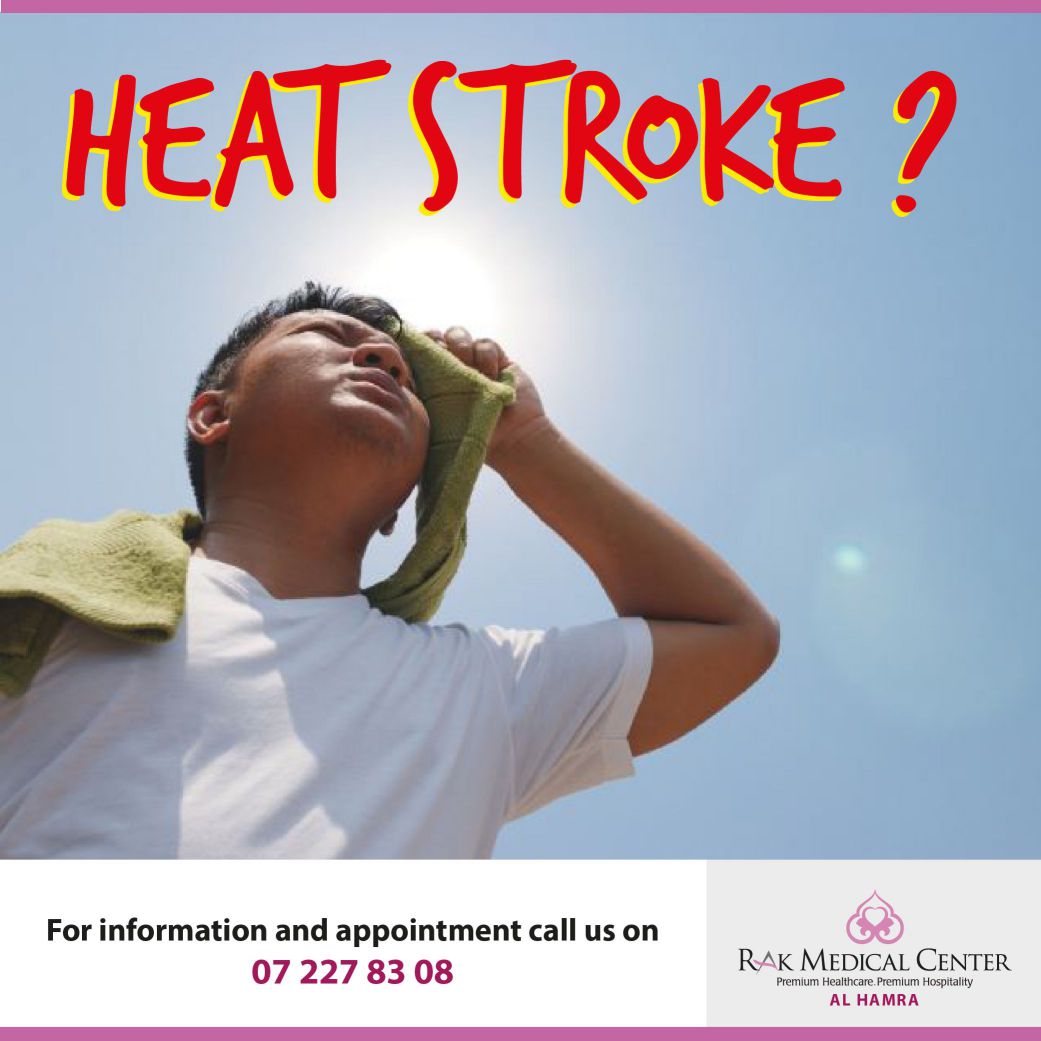HEAT STROKE:
Heat stroke is a condition which causes your body to overheat, in which the body temperature is elevated dramatically. Heat Stroke is a medical emergency and can be fatal if not treated promptly and properly, as it can quickly damage your brain, heart, kidneys and muscles.
It is caused by direct prolonged exposure to sun, staying in a hot area for long time or prolonged physical exercise in high temperature during which your body temperature will elevate. This is most often accompanied by dehydration. This condition is most common in the summer months.
WHO IS AT HIGH RISK OF HEAT STROKE?
- Infants
- The elderly (often with associated heart disease, lung disease, kidney disease, or who are taking medications that can make them vulnerable to dehydration and heat strokes. Some medications affects the body’s ability to stay hydrated and respond to heat, e.g.: (vasoconstrictors, beta blockers, diuretics, and antidepressants or anti psychotics). Also stimulants for attention deficit/hyperactivity disorders (ADHA), illegal stimulants such as amphetamine and cocaine also make patient more vulnerable to heat stroke
- Athletes
- Individual who works outside and physically exert themselves under the sun
- Infants, children or pets left in cars. The indoor temperature of a locked car can rise to dangerous levels even in moderate weather. In addition to the safety risks, cars should always be kept locked when not in use so that children may not enter and be trapped.
SYMPTOMS:
- High body temperature
- Altered mental state or behavior, confusion, agitation, slurred speech, irritability, delirium, disorientation, seizers and coma
- Alteration in sweating. Your skin will feel hot and dry to touch, if the heat stroke brought on by hot weather, or if heat stroke brought on by strenuous exercise the skin may feel dry or slightly moist and hot
- Nausea and vomiting
- Flushed skin: the skin turn red
- Rapid breathing
- Racing heart rate
- Headache
- Muscle cramps
If the person is exposed to heat stroke, he/she should seek medical advice immediately. Immediate First Aid action is to cool the patient while waiting for emergency treatment.
WHAT TO DO IF YOU WITNESS A PERSON WITH HEAT STROKE?
- Get the person into shade or indoors
- Remove excess clothing
- Encourage the person to drink water or a sports drink, get them to sip slowly and continuously
- Cool the person with whatever means available e.g: put in cool tub of water, or a cool shower, spray with a garden hose, sponge with a cool water. Fan while misting with cool water or place ice packs or cold wet towels on the person’s head neck armpits and groin.
HOW I CAN PROTECT MY SELF FROM HEAT STROKE?
- Wear loose fitting, light weight clothing
- Protect against sunburn. Protect yourself out door with a wide-brimmed hat and sun glasses and use broad spectrum sun screen with a SPF of at least 15. Apply sun screen generously, and reapply every two hours, or more often if you are swimming or sweating
- Drink plenty of fluids. Staying hydrated will help your body sweat and maintain a normal body temperature
- Take extra precautions with certain medications
- Never leave anyone in a parked car
- Get acclimated. For those people who are not used to hot desert weather, they should give their body time to adjust with the heat. Few examples are – limit time spent working or exercising in the heat until the body get used to the temperature. If you are at high risk like taken medications or have conditions that increases the risk to heat exhaustion, avoid the heat and act immediately if you notice symptoms of overheating. If you participate in a strenuous sporting events or activity in a hot weather make sure there are a medical services available for intervention.
Dr. Nissren Taha
General Physician
RAK Medical Center, Al Hamra




